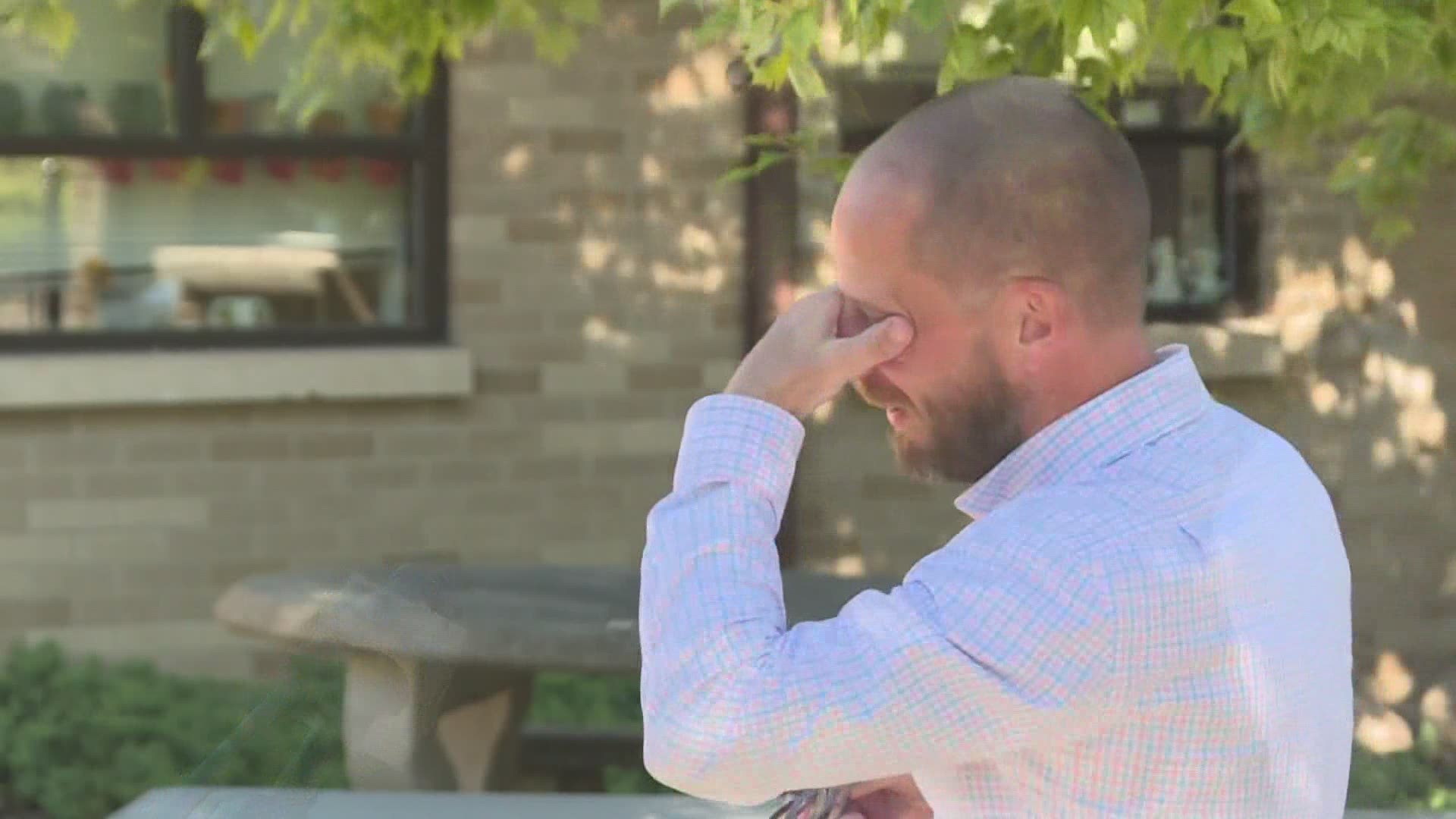GRAND RAPIDS, Mich. — Their days are filled with long hours, high stress and trauma. Lately, the job demands for social workers have only increased. Nevertheless, they continue to answer the call of duty and have become the unsung heroes of the COVID-19 pandemic.
"Since day one, they have been on the front-lines seeing clients," says Katy Buck, the director of communications for D.A. Blodgett St. John's.
The non-profit provides more than a dozen different programs, ranging from counseling and foster care to adoption, mentoring and residential care. Founded in 1887, D.A. Blodgett St. John's has spent generations substantially impacting the lives of West Michigan children and families. And, more than 100 social workers sit at the core of the organization, making positive change happen.
"You know I observe what they do on a daily basis. The passion they have to help these kids and families is always their top priority. You know, they never think about themselves first. They never think about how these things are affecting them. It's always about how they can help the people they work with and how can they help the kids who have just experienced trauma and desperately need this extra level of support," says Buck.
RELATED: Foster care during the pandemic
"It's the same everywhere. You are in social work to help people," says veteran social worker Jeremiah Hawkins.
Hawkins is currently the chief programs offer for D.A. Blodgett St. John's. He says since the pandemic started social workers have been called, day and night, to offer support in a variety of settings, ranging from hospitals to nursing homes as well as mental health and child welfare.
"Really what this is all about is just trying to make people's lives a little bit better the best way that we can," he says. "You know families need us all day, every day, sometimes. This isn't a 9 to 5 job. The families we are working with are usually at the lowest point in their lives."
The pandemic has compounded difficulties for many of those families, but also touched the lives of the very people tasked with helping them.
"Let's not forget our staff aren't immune to those things. You know, staff have family members who've been laid off. They've had family members who've gotten sick and all of those things. And, they continue to do their jobs to the best of their abilities," said Hawkins.
Buck agrees there is "a lot of secondary trauma that comes from the work." However, she firmly believes social workers answer a calling to help.
"It's a challenging job. It's a hard job. They do this job because they love it. They do this job because they want to help these people succeed," she says. "You know we have a lot of respect for doctors and healthcare workers, but social workers are ones we don't hear a lot about. So, I just think it's really important to give them the credit they deserve. Again, they've been here since day one, working hard and they're dealing with a pandemic too, on a personal level."
She believes a little recognition could help lighten the load for social workers.
"I have so much respect for them," says Buck. "I think a simple thank you goes a long way. It's something that's not always recognized in this field."
Hawkins, like many other social workers, say they live for the days when the job becomes its own reward.
"Oh, when you see a family re-unified or when you see kids get better. You know, when you see a smile on their faces," says Hawkins. "I mean, that's it. That's what it's all about. When you can do that in a day, then you can go home and be really proud of yourself. I think that's what people really want - to be able to say I made a difference today."
►Make it easy to keep up to date with more stories like this. Download the 13 ON YOUR SIDE app now.
Have a news tip? Email news@13onyourside.com, visit our Facebook page or Twitter. Subscribe to our YouTube channel.



